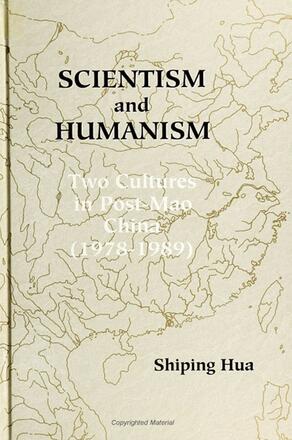
Scientism and Humanism
Two Cultures in Post-Mao China (1978-1989)
Alternative formats available from:
Description
This book is a study of the transformation of Chinese political consciousness during the post-Mao era. Departing from the common wisdom of the day that Deng Xiaoping's pragmatic-oriented reform has made ideological discussions irrelevant, this book holds that while it is probably true that no single, fixed ideology has existed during the period, the ideological dimensions not only have persisted, but also can be analyzed systematically.
Shiping Hua is Visiting Fellow with the Program for Cultural Studies, East-West Center and also teaches Political Science at Hawaii Pacific University.
Reviews
"Not only is this topic significant, but unlike most of the literature available on this period in Chinese history, this author is able to write from an internal perspective, providing the reader with an importantly different point of view.
"The author uses a combination of statistics and case studies to frame his interpretation of the relationship between scientism and humanism in contemporary China, and to bring the role of the intellectual into clearer focus. It is very well done." — Roger T. Ames, University of Hawaii
"This study is the first of its kind using the scientism and humanism framework to examine Chinese intellectual thought in the late twentieth century. It formulates the highly original concepts of Marxist, technological, and empirical scientism as well as Marxist, Confucian, and critical humanism." — Alvin Y. So, University of Hawaii
"I was deeply impressed by the author's knowledge of the field and his profound understanding of the research subject. His analyses are insightful and occassionally witty, his command of the English language, presumably his second language, just superb. He seems well read and well informed. Reading the book was a pleasure." — Yanan Ju, Central Connecticut State University